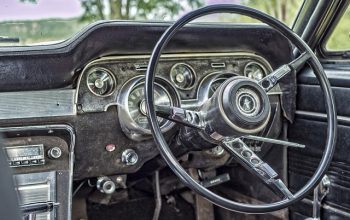When purchasing a vehicle from a salvage car auction or a private seller, it's crucial to understand the implications of a salvage title. A salvage title indicates that the vehicle was previously deemed a totaled car by an insurance company due to significant damage from accidents, natural disasters like floods, or other issues. This designation can affect the car's safety, functionality, and market value. Vehicles with salvage titles must undergo a thorough rebuild process and pass rigorous state inspections to be reclassified as vehicles with rebuilt titles, indicating they have been repaired to operational standards. It's essential to inspect the vehicle and review its history report for detailed information on its past damage, repair work, and salvage status. These reports also confirm if it has successfully transitioned to a rebuilt title. Keep in mind that vehicles with rebuilt titles are subject to state regulations and may still present challenges in terms of insurance and resale value. Prospective buyers should carefully evaluate the condition of these cars and their history to make an informed decision, as they could be a sound investment if properly assessed and restored. Always consider the cost, effort, and legal aspects involved in owning a vehicle with either a salvage or rebuilt title from a salvage car auction or a private seller.
Exploring the potential of a salvage vehicle can be a cost-effective and rewarding endeavor for car enthusiasts and savvy buyers. These vehicles, often labeled as damaged or repairable, are sold at salvage car auctions with substantial discounts due to their accident history or status as insurance write-offs. The journey of transforming a salvage title vehicle into a functional and valuable asset is both intriguing and complex, involving a careful balance between inspection, legal compliance, and investment. This article delves into the nuances of salvage titles, the rebuild process, and the strategies for maximizing your investment in a damaged car. From understanding the implications of a salvage title to navigating the legal framework required to obtain a rebuilt title, we’ll guide you through each step. We’ll also explore how to assess the condition of totaled or wrecked vehicles, common issues to watch out for, and the importance of vehicle history reports. Additionally, we’ll provide insights into the best practices for rebuilding your vehicle, sourcing quality parts, and enhancing its resale value. Whether you’re considering a salvage car auction purchase or have already acquired a salvage titled vehicle, this article is designed to equip you with the knowledge necessary to make informed decisions and transform your investment into a road-worthy asset.
- Understanding Salvage Titles and Their Implications for Buyers
- – Defining a Salvage Title: What It Means for Your Car
- – The Journey from Salvage to Rebuilt Title: Legal Framework and Requirements
- – Importance of Vehicle History Reports in Assessing Salvage Cars
Understanding Salvage Titles and Their Implications for Buyers
When considering the purchase of a salvage vehicle, understanding the implications of a salvage title is paramount. A salvage title, also known as a ‘brand,’ indicates that a vehicle has been classified as a total loss by an insurance company due to collision, theft, or flood damage. This classification can affect not only the vehicle’s value but also its insurability and resale potential. In many jurisdictions, once a vehicle receives a salvage title, it cannot be registered until it undergoes a thorough rebuild process, which includes inspection and certification to ensure it meets safety and operational standards. The rebuild process is crucial for transforming a salvage title car into a vehicle with a ‘rebuilt title.’ It’s important for buyers to ascertain the type of salvage title the vehicle holds, as some may have stricter regulations than others.
The distinction between a rebuilt title and a salvage title is significant. A rebuilt title signifies that the vehicle has been inspected and repaired to the extent that it can be registered for use on public roads. However, potential buyers should be aware that vehicles with rebuilt titles may still have residual issues from their past, which could affect their performance and safety. At salvage car auctions, you’ll find a variety of damaged cars, including those that are wrecked vehicles due to flood damage or accidents, all carrying different levels of salvage titles. It’s essential to conduct a thorough inspection and review the vehicle history report to understand the extent of the repairs made and to assess whether it aligns with your comfort level and budget. Understanding these aspects will help you navigate the complexities of purchasing a salvage vehicle and can lead to a successful acquisition that offers a good return on investment.
– Defining a Salvage Title: What It Means for Your Car
When exploring the market for a vehicle, one may encounter terms like ‘salvage title’, ‘rebuilt title’, and ‘totaled car’. A salvage title is assigned to a vehicle that has been damaged in an accident, declared a total loss by an insurance company, or flooded-damaged, to the extent that the cost of repairs exceeds the value of the car. This designation doesn’t necessarily mean the vehicle is beyond repair; rather, it indicates that the vehicle has a history of significant damage and has been branded accordingly in the state’s motor vehicle records. Purchasing a car with a salvage title can be a cost-effective option, as these vehicles are typically sold at salvage car auctions or through other specialized outlets at a fraction of their original price. It’s crucial for potential buyers to conduct a thorough inspection and understand the legal implications of owning such a vehicle. A rebuilt title is issued after a salvage vehicle has been thoroughly repaired and brought back to operational condition, often with improvements over its pre-damaged state. This title certifies that the car has passed a series of inspections and meets all necessary safety and legal requirements to be roadworthy again. Prospective buyers should be aware that while a rebuilt title signifies a vehicle that has successfully undergone this process, it may still be harder to insure than a car without such a history. Moreover, the resale value of a rebuilt title vehicle can be significantly influenced by its past, so informed decision-making is key when considering a salvage or rebuilt title vehicle.
– The Journey from Salvage to Rebuilt Title: Legal Framework and Requirements
When a car is declared a total loss by an insurance company due to an accident, flood damage, or other significant damage, it enters the realm of salvage vehicles. This designation as a salvage title car occurs when the cost to repair the vehicle exceeds its actual value. The journey from salvage to rebuilt title is governed by a strict legal framework that varies by state but generally involves a meticulous evaluation and restoration process. To transition a salvage title car into a rebuilt title, the vehicle must undergo a series of repairs that return it to safe, roadworthy condition. This process is overseen by state authorities and often includes a detailed inspection to ensure all damaged components are replaced or repaired to manufacturer specifications. The vehicle’s history is then documented with a ‘rebuilt title,’ indicating its past but also certifying its present compliance with safety standards. It’s crucial for buyers interested in salvage car auctions, where damaged cars such as totaled or wrecked vehicles are sold, to familiarize themselves with these requirements and the implications of a rebuilt title. Understanding the legalities not only ensures compliance with the law but also provides confidence that the vehicle has been properly restored and is safe for operation. Buyers should be aware that while a car may have been deemed repairable and received a rebuilt title, it may still have diminished value, and disclosure to future buyers about its history is typically mandatory. Navigating the process from salvage title to rebuilt title requires diligence, knowledge of state regulations, and often a willingness to undertake significant repairs on a flood-damaged vehicle or one that has been involved in an accident. With the right approach and resources, however, a salvage car can be transformed into a reliable mode of transportation, offering a potentially rewarding investment for those with the expertise to handle such projects.
– Importance of Vehicle History Reports in Assessing Salvage Cars
When contemplating a purchase of a salvage vehicle, whether from a salvage car auction or a private seller, acquiring a comprehensive vehicle history report is indispensable. These reports, such as those provided by services like Carfax or AutoCheck, reveal critical information about the car’s past, including its salvage title status. A salvage title indicates that the vehicle was previously declared a total loss by an insurance company due to extensive damage from accidents, natural disasters, or flood-damaged vehicles. Understanding the context behind this designation is crucial; it can affect the car’s safety, functionality, and overall value. The report will detail the nature of the incident that led to the vehicle being branded as salvage, which is vital knowledge for a prospective buyer. It also outlines any subsequent rebuild efforts, which could lead to a rebuilt title if the vehicle has been repaired and meets the criteria set by state regulations. This transition from a salvage title to a rebuilt title can significantly influence the car’s market value and its insurability, making the history report an essential tool in assessing the potential return on investment for a repairable vehicle. Buyers should scrutinize these reports carefully, as they often contain details about the vehicle’s condition before and after its salvage title was issued, including whether it has been restored to roadworthy status. With this information at hand, one can make an informed decision on whether the salvage car in question is a sound investment or not.
When contemplating the acquisition of a salvage vehicle, it is crucial to navigate the complexities associated with salvage titles and the potential for transformation into a rebuilt title. Prospective buyers must thoroughly inspect salvage cars, consult comprehensive vehicle history reports, and familiarize themselves with state-specific regulations regarding these vehicles. By doing so, one can confidently approach a salvage car auction, armed with knowledge about the status of totaled or wrecked vehicles, and assess the viability of such a purchase as a flood-damaged vehicle, for instance. With diligence and adherence to the rebuild process, these once damaged cars have the potential to regain their value and provide an excellent return on investment. Thus, for those with the expertise and willingness to invest time and resources into restoration, salvage car auctions present a unique opportunity to own a repairable vehicle at a significantly reduced cost.



